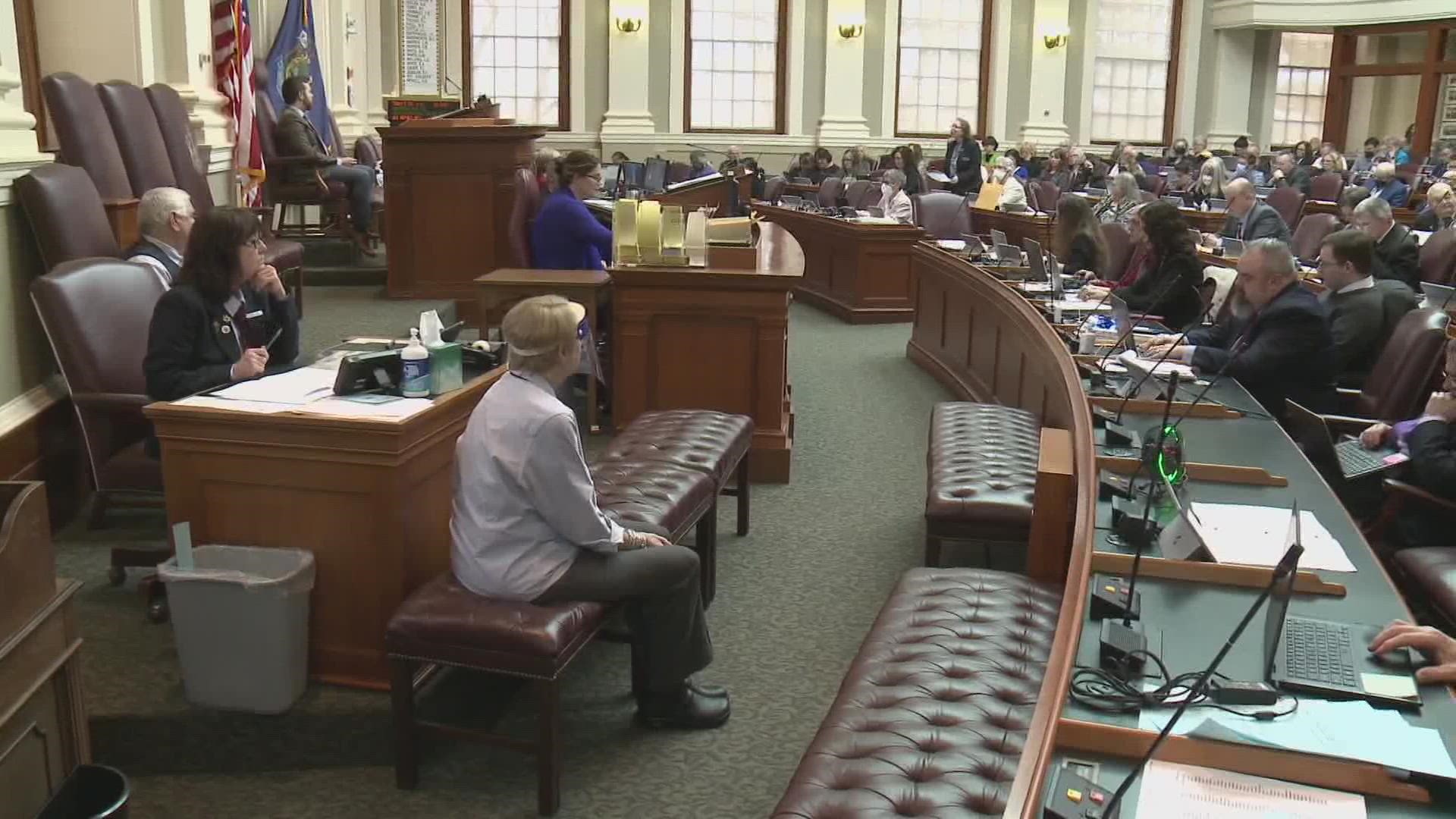AUGUSTA, Maine — State lawmakers have much to attend to before adjournment Monday. When they return that day, they are expected to decide how to spend the remaining $12 million allotted in the supplemental budget.
Parties in each chamber will caucus to decide how to spend $3 million each.
Three notable bills remain undecided.
The Good Samaritan bill is an extension of the Good Samaritan law that was instated in 2019, which is designed to protect a person experiencing overdose symptoms and the person who calls 911.
Initially, the bill expanded immunity from prosecution to anyone at the scene of the overdose. Gov. Janet Mills said that decision was too broad to decide upon.
Courtney Allen of the Maine Recovery Advocacy Project, however, disagreed.
"We know that on the front lines of the opioid crisis people are still afraid to call 911 and get the help that they need," Allen said.
The two sides have reached a compromise, only giving immunity to anyone actually trying to help a person who may be experiencing symptoms of an overdose.
Legislators also are slated to consider An Act To Ensure Transmission and Distribution Utility Accountability.
The bill, which would have to be enacted before heading to Mills' office, "will hold utilities accountable for performance with required penalties if they failed to meet standards for things like reliability, service, rates, and most importantly our climate goals," the bill's sponsor, Sen. Stacy Brenner, D-Scarborough, said.
Also unresolved is a bill to increase transparency in prescription drug prices.
Sen. Ned Claxton, D-Auburn, the bill's sponsor, said he hopes Maine can manage prescription drug prices more like Canada does.
"If we could peg our charges or the bills for our bills of what was being paid for in Canada, we'd come out way ahead," Claxton said.
This law requires the Maine Health Data Organization to identify the most used and most expensive drugs in Maine to see how the prices can be reduced.
Mills has already signed this into law.

